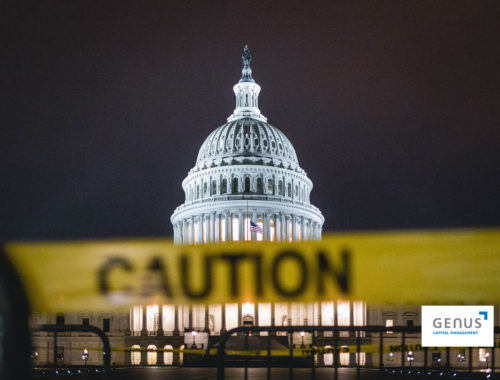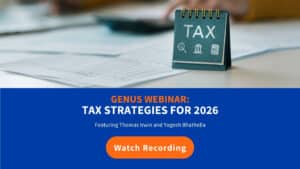Friday Market Insights – The market anticipates more stimulus from the now Democratic Senate, with Mary Lou Miles and Wayne Wachell
This week's questions:
[00:36] : What’s happening overall for stocks at the start of 2021?
[01:26] : What changes that we actually made and clients portfolio to reflect that?
[02:06] : What is the impact, the January fixed violence in the Capital and the longer term for the market?
[03:54] : Georgia Senate election this week means President elect Joe Biden will have a Democratic government, including the House and the Senate, when he takes office January 20th. What impact will this have on the stock market longer term?
[05:47] : The rollout of covid vaccinations by country we were talking about earlier in your comments in the video, with the exception of Israel, seems to be lagging. And now we have a new variant spreading around the world. Is there a risk to first quarter global GDP estimate?
[07:04] : How is that how the 2020 recession, which seemed like a blip, actually different from the one in nineteen eighty-two thousand, one and two thousand?
Mary Lou Miles: [00:00:05] Welcome to our Friday Market Insights video for January 8th, twenty twenty one. We’re back after a few weeks on hiatus. My name is Mary Lou Miles, partner and director of wealth management here at Genus. Once again, I’m here to Wayne Wachell, CEO, co-founder and chief investment officer. A few questions, Wayne. There’s been so much happening this week from the market perspective. The S&P 500 closing 20 20 with a sixteen point three two percent return and the S&P Toronto Stock Exchange up five point six percent this year. What’s happening overall for stocks at the start of twenty twenty one?
Wayne Wachell: [00:00:40] Well, first off, happy New Year to to everyone, hoping a better twenty twenty one than twenty twenty. Well, we’re starting off with the same momentum we ended the year with, hope. There is hope out there in twenty twenty one. That’s the big year. This year would be year of hope. I think we’ll see how it ends up, but so far so good. Market started off actually up, you know, up for the up for the week. But if you look internally, things were things were going on. Bond yields rose quite dramatically and it was more of a move towards value and the cyclicals doing well within the market and growth and technology not as doing as well. So a bit of internal things going on there. And we can get more into the details of why these things are happening.
Mary Lou Miles: [00:01:25] So given our view, what changes that we actually made and clients portfolio to reflect that?
Wayne Wachell: [00:01:31] Well, we’ve been moving, taking money off the technology side to get more into into the valued areas and the financials, cyclicals, materials, industrials for the past two or three months. We get a bit more of that at the beginning of this year, just pushing more into that that expectation that we will have a recovery this year. Will, looking through the clouds right now of covid and having stronger growth later on this year as a stimulus and the vaccines kick in later on this year.
Mary Lou Miles: [00:02:01] So most of us were glued to the screens with Wednesday, watching the events unfold in the US. What is the impact, the January fixed violence in the Capital and the longer term for the market?
Wayne Wachell: [00:02:12] Well, it was very disturbing, I find it very disturbing and unsettling, actually, to watch it happen. It affected my all day, but to the you know, but to to the market, it was really a nothing burger. It’s let me explain. Typically, when there’s tension, political tension, the markets seem to look through it. You look at wars when the first cannon fired, the market takes off. And in some way, this was maybe a cannon that was fired, politically. And it really broke the back of the Trump resistance, I believe. And it also was that the Democrats won the Georgia Senate both both seats, which was even bigger news in terms of more stimulus coming down the road. So, you know, it’s it’s unsettling. It’s disturbing. And but from a market perspective, it’s seeing right through this.
Mary Lou Miles: [00:03:02] You know, the thing about the market reaction to the non-farm payroll numbers today than they sort of shrugged off all the other aspects.
Wayne Wachell: [00:03:10] Speaking of the non-farm payrolls, you know, they were below expectations. The shutdowns are having an impact on that. But if you look internally, the numbers weren’t that bad. The jobs were coming from restaurants in the service sector. But manufacturing, manufacturing, homebuilding, those kinds of areas are still robust and strong. And through the course of this year, the vaccines hit and the stimulus hit, their service sector will come back. So there’s a good base in the economy. I believe the market economy has adapted. People are still working. And so it’s you know, we’re waiting for that one last couple of pistons to to kick in on me later on this year, which helped get more and more growth next year or this year.
Mary Lou Miles: [00:03:53] Yeah, the Georgia Senate election this week means President elect Joe Biden will have a Democratic government, including the House and the Senate, when he takes office January 20th. What impact will this have on the stock market longer term?
Wayne Wachell: [00:04:09] Well, after November the 5th, I said the center held well, a center held kind of. And let me let me explain. You know, there’s there’s people are calling the blue blue wave. It’s not a blue wave. It’s a blue a blue ripple. The margins are razor thin in both the Senate and the House. And that’s going to constrain the Biden administration in terms of what they can do. They have to really focus. So they have to get those votes in the middle to get things done. And that’s a good thing. And I think the market is seeing through that. So it’s saying we’re going to get more stimulus had the that than the case of the Republicans held up in the Senate. So we’re going to more stimulus, which is a good thing in the short term at least, longer term we have to pay for all these debts. But in the short term, it’s a good thing. And I think it’s going to so we get the spending, but we don’t get any sort of far left policies, though. There should be some moderate tax increase, I would expect. But I think the coming Congress is going to be driven more by the moderates than the extremes at both ends of each party. And remember, in the US, it’s amazing. There is a congressional election in twenty twenty two. That’s in November of twenty twenty two. That’s less than two years from now. So there’s going to be people, they’re going to want to get things done and come to the center I think is the next elections upon us. And so that’s where the market responded so positively. It’s we’re going to get more, more stimulus and we’ll deal with the problem that longer term. But it’s going to help the economy in the coming coming year.
Mary Lou Miles: [00:05:47] The rollout of covid vaccinations by country we were talking about earlier in your comments in the video, with the exception of Israel, seems to be lagging. And now we have a new variant spreading around the world. Is there a risk to first quarter global GDP estimate?
Wayne Wachell: [00:06:04] Well, as I said earlier, the core of the economy is still strong, economy has adapted to rising quickly right now, and this wave here is going to drag things down a bit. But still, the manufacturing side is strong. The housing side is very strong. When people buy, buy new homes or move to a new home is tend to buy a lot of things in the home, including furniture and everything else. So and people are still working. And also the workers look at the inequality’s here. In some ways, the workers that make larger salaries in the information sectors are still working. And the people have been hurt the most are low income earners, which don’t make as much as much money. And so the majority of the money out there in terms of consumer can spend, can consume, consumer spending is still is still doing OK. And that’s an equity that obviously. But in terms of the overall economy, it is a plus for that and for the economy.
Mary Lou Miles: [00:07:02] Continues to be the main street VS Wall Street story. How is that how the 2020 recession, which seemed like a blip, actually different from the one in nineteen eighty two thousand, one and two thousand?
Wayne Wachell: [00:07:15] It was well, let me give you the analogy of an airplane, normal recession, airplanes flying at 40 thousand feet. It’s a recession, goes to thirty five thousand feet slowly and then comes back out very slowly, back to 40 thousand feet. And this in this recession, in two thousand and twenty, they turn the engines off and the plane dove quickly from forty thousand twenty thousand feet and then hit a bottom and started diving are going rising very rapidly. So if they turn the engine off , it dove, and then it came back. And so but we’re still not as high. We’re still on a 40 thousand feet. We probably won’t get the 40 thousand feet together until probably twenty twenty two. So that’s that’s the issue. There was very quick and hard and versus gradual from, you know, from previous recessions.
Mary Lou Miles: [00:08:04] Thanks Wayne as always, lots to think about on all of the subject here. So that concludes our video for this week. Thank you so much for watching. Please do reach out to your portfolio manager if you’ve got any questions. And for those of you new to Genus, please click the link on our website and one of our team members will get back to you. On a personal note, as of this week, this is my 16th year at Genus. So when I worked with you for a long time and I want to thank all the clients I work with and the team here at Genus for their support, it’s the reason I continue to love what I do. And as we head into twenty twenty one with the hope that we talked about earlier of a successful vaccination roll out, longer days of sunlight and the possibility of seeing each other in person later this year, we wish you all a happy New Year as Dr. Anthony Henry, the BC Health Provincial health officer saids to be kind, be calm and be safe. And we’ll see you next week.














